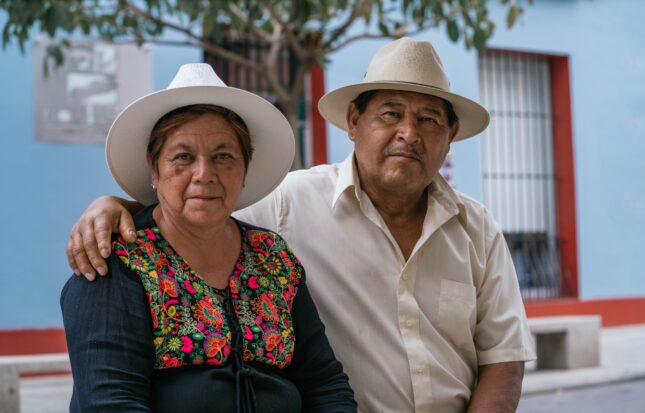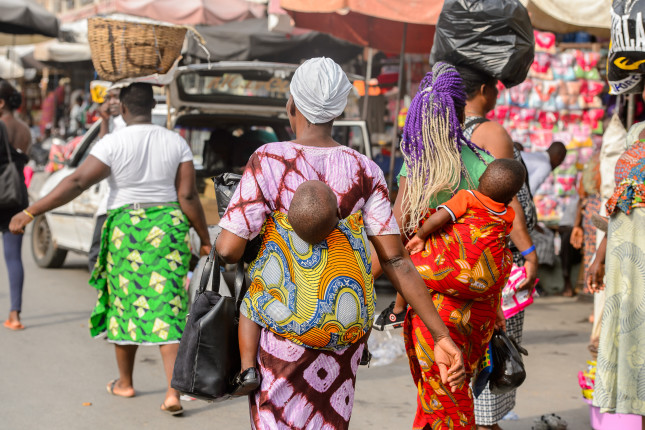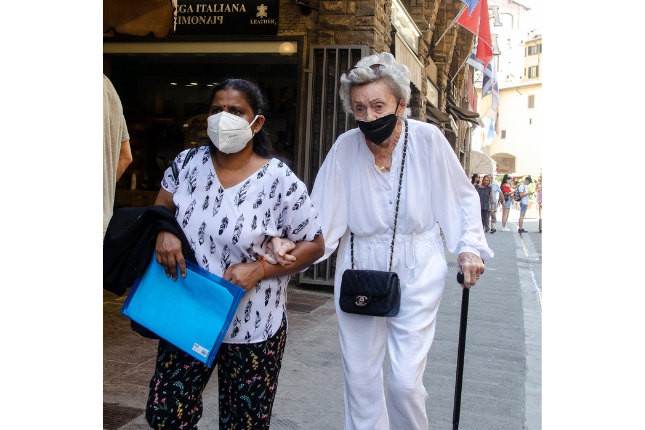-
Mexico Is Growing Old. Can It Build a Care System in Time?
›
Elvia León, the youngest of seven children, wanted to leave Bomintzhá back in 1987. “I told my mother that I didn’t want to live in that kind of poverty, and she supported me.” Her father was less pleased with her plans to abandon their small community in Mexico’s Hidalgo state to study in the city of Querétaro. “The culture here is that women are meant to be at home, doing domestic chores.”
-
Unpaid Care Work: The Invisible and Sustaining Powerhouse
›
Unpaid care and domestic work—encompassing market activities from cooking and cleaning to child and elder care – plays a critical role in upholding the economy, making all other work possible. The global value of this work is close to $11 trillion annually, according to estimates from the International Labour Organization (ILO).
-
Nigeria’s Demographic Moment? Or Just Wishful Thinking?
›
Over the past several months, members of the foreign affairs and development communities have heaped a great deal of attention—and interpretation—on the pace of demographic change in Nigeria.
-
New Global Health & Gender Policy Brief: Migrant Care Workers and Their Families
›
Migrant care work is a key component of the ongoing global care crisis. The global care economy is critical to overall economic growth, and also affects gender, racial, and class and caste equity and empowerment. Caregiving is also the fastest-growing economic sector in the world—projected to add 150 million jobs by 2030. Global societal changes, like low birth rates, demographic aging, and an increase in female labor force participation, are basic drivers of the continued growth of this sector. But because in many cultures care work is considered “instinctive” for women—a type of work not requiring skill—it has remained virtually invisible, unpaid or underpaid and unregulated. It is also often stigmatized, especially when relegated to already marginalized and underrepresented populations.
-
New Global Health & Gender Policy Brief: The Global Care Economy
›
Care work makes all other work possible. It is also the fastest-growing sector of work in the world—projected to add 150 million jobs by 2030. The COVID-19 pandemic has amplified the importance of care work. It has also exposed how women perform most caregiving work, which is unpaid, underpaid, and/or undervalued. Globally, women and girls contribute more than 70 percent of total global caregiving hours (paid and unpaid) and perform more than 75 percent of unpaid care work. The inordinate amount of unpaid care work women and girls perform prevents them from earning a paid income, which contributes to greater gender inequities worldwide.
-
The Lasting Effects of the COVID-19 Pandemic on Women’s Work, Health, and Safety (New Report)
›
While the COVID-19 pandemic has affected the lives of many around the world, its effects on women have been particularly devastating. Even before the pandemic, women are highly affected by violence. Since the pandemic, rates of gender-based violence have risen, while uptake of critical health services have decreased. Women, especially low-income women, women of color, and migrant women, are also more likely to work in jobs that are underpaid, undervalued, and unprotected, and they comprise the majority of the frontline or “essential” workforce, which includes grocery and food retail workers, health care workers, and care workers.
-
Caring for Those Who Give Care: How COVID-19 Created a Crisis for Caregivers
›
“We’re always coping with a change,” said Denise Brown, Founder of the Caregiving Years Training Academy and a caregiver for her elderly parents. “And the change is often outside of our control.” She spoke at a recent event focused on the caregiving crisis, hosted by EMD Serono, the healthcare business of Merck KGaA, Darmstadt, Germany in the United States and Canada. When the doors to daycares, elder day residences, and adult care facilities closed at the start of the COVID-19 pandemic, many Americans had to step into caregiving roles. “We’re doing our best to manage the change and keep going,” said Brown. “Because so many people rely on us and depend on us, we have to keep going.”
-
The Care Economy is the Backbone of the Economy
›
“Pandemic recovery plans cannot simply work to bring economies back to their pre-COVID status,” said Katrina Fotovat, Senior Official in the Office of Global Women’s Issues at the U.S. Department of State. She spoke at a recent event hosted by the Wilson Center’s Maternal Health Initiative and Middle East Project in collaboration with EMD Serono, the healthcare business of Merck KGaA, Darmstadt, Germany, on recognizing women’s paid and unpaid work during COVID-19 recovery. Economic recovery plans must include the most undervalued industries and marginalized workers, especially women, she said.
Showing posts from category caregiving.











